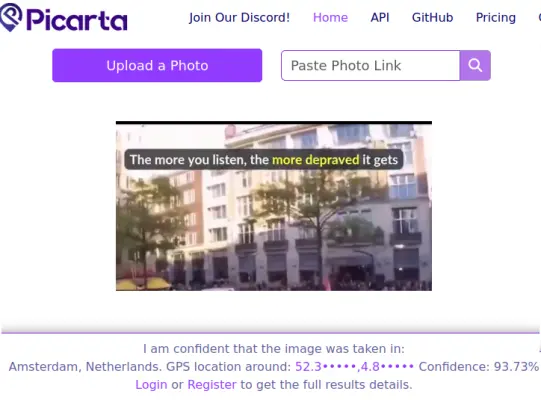Pogrom btw
Edit: The translation and perpetrators are accurate, but there are suggestions this did not happen in Amsterdam but in Israel. I removed the mention of Amsterdam from the title just in case.
Re-edit: Ai is pretty cool. It was in Amsterdam.



It’s documented on the Israeli football team’s fan wiki and is from as far back as 2015:
https://www.maccabipedia.co.il/שיר:שיר_האונס
Feel free to use your translation tool of choice
Holy cow. I plugged that into a translator and it’s awful. Every time I think Israel can’t go lower something like this comes out. I can’t believe they have sung this song for almost a decade. I was going to post parts of it here to save people the effort of translating it, but it’s so hateful I don’t want to be responsible for that.
Here is Chat GPT translation and contextualization to me:
: Here’s an English translation and explanation of the text you provided, which is indeed hateful and provocative:
Translation: You play the extremists, sing songs about the Holocaust And even think it’s funny to deny the State You are prostitutes for the Arabs, we are ashamed of you At the end of the day, Gate 5, we will f*** you We will f*** you, and then we will drink your blood And in the town square, we will hang every communist who comes here We will take your girls, who love to party When we rape them, we will shout: today, death to Hapoel! Today, death to Hapoel…
Context and Analysis: This text appears to be a highly aggressive and provocative chant, likely linked to extreme rivalries in sports culture, particularly football (soccer) in Israel. Such chants are often used by ultra groups or fanatical supporters to express deep hostility towards opposing teams or their supporters—in this case, targeting “Hapoel,” a well-known sports club.
The language used is explicitly violent, sexist, and incites hatred, demonstrating how some chants can cross from intense competition into dangerous expressions of prejudice and violence. If used in real-world settings, such chants contribute to an atmosphere that promotes aggression, intolerance, and harmful behavior in and outside stadiums.
This type of content, while reflective of a certain subset of fan culture, raises concerns about boundaries in sportsmanship, hate speech, and the impact on broader societal norms. If you’d like, I can provide further insight into how this type of rhetoric is handled legally or culturally.
Is fan hooliganism prevalent mostly among soccer fans? This doesn’t seem to be the first time soccer fans are violent (https://en.m.wikipedia.org/wiki/Football_hooliganism)
I remember it used to be a way bigger problem than today. To the point where they beat other guests to death. At least in Germany they cracked down and it’s mostly under control now, with a lot of police presence.